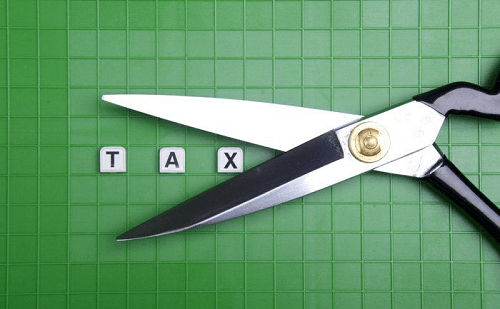
4.8.21 – TBP
Arkansas lawmakers on Thursday (April 8) approved tax cut measures in the House Revenue & Tax committee, including a larger exemption for used car taxes and a repeal of the soft drink tax.
For the first 88 days of the 93rd Arkansas General Assembly, legislative leaders have been holding off major tax cuts, despite a nearly $500 million surplus, as they stitch together the $5.86 billion state budget.
Now that Revenue Stabilization Act (RSA) talks have formally commenced between the executive and legislative branches, a clearer consensus of revenue and spending has emerged.
In a morning session, House Revenue & Tax Committee chairman Rep. Joe Jett, R-Success, and Joint Budget co-chairman Rep. Lane Jean, R-Magnolia, outlined budget and tax options. Jett said committee members had prioritized six potential tax cut bills and he provided further clarity on how a process for these and future tax cuts might work.
He noted that House and Senate leaders and the governor are in agreement to send approximately $400 million in surplus to the state’s long-term reserve fund, which will boost the balance to $600 million. This balance ensures that Arkansas qualifies for the best interest rates for bonds and financing.
Jett said a used car tax break that would allow no sales tax to be paid on used vehicles sold between $4,000 and $7,500, and two years from now up to $10,000, had widespread support. The fiscal impact to the state for the measure, HB 1170, is $9.5 million in year one and $28.4 million by year four. In an afternoon session of the tax committee, the bill passed HB 1170.
The afternoon panel also approved another proposal, a repeal of the soft drink tax, which was instituted in 1992 to shore up the state’s Medicaid Trust Fund. HB 1546 would eliminate $9 million in year one and $38.2 million by year three in soft drink tax collections. General revenues will replace the funding.
Jett said legislative leaders and Gov. Asa Hutchinson have discussed coming back in a special session later this year to consider additional tax reform. The governor indicated to lawmakers that he wants a “meaningful tax cut” by reducing the top personal income tax rate from 5.9% to 5.7%. The hit to the state would be roughly $54.8 million annually. Other considerations this fall could include a larger standard deduction for taxpayers and reforms to the tax brackets to eliminate sharp tax increases when a wage earner enters a new bracket.
A major tax relief bill, SB 236, was signed into law earlier this session. Now Act 154, it forgives state taxes for workers who received unemployment benefits in 2020 and 2021 as a result of the pandemic. If the taxes were to be collected, it would have added an estimated $54.1 million to state coffers. Legislators said the forgiveness was the right thing to do for struggling workers who didn’t have an easy option to have state taxes withheld; they also argued they didn’t budget for the windfall in passing the measure.
Rep. Jean warned the committee that by the next legislative session, there would be a new financial threat to the state keeping its budget balanced. He noted that teacher insurance was heading on a trajectory that would require legislative remedies.
“We’ve been kicking this can down the road for 10 years,” Jean said. He suggested that state contributions as well as employee contributions would likely be looking to increase during the 2023 legislative session.
